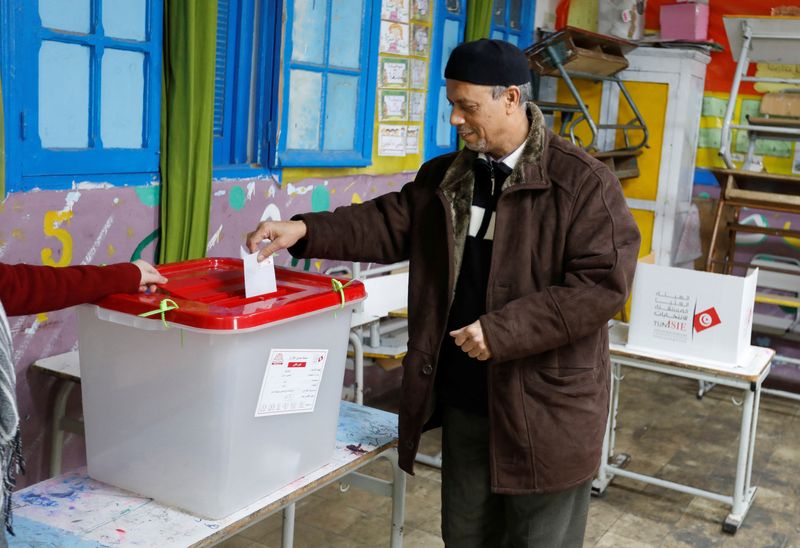[the_ad id="21475"]
[ad_1]
© Reuters. A voter casts his ballot at a polling station during the second round of the parliamentary election in Tunis, Tunisia January 29, 2023. REUTERS/Zoubeir Souissi
2/2
By Tarek Amara
TUNIS (Reuters) – Tunisia opened polls on Sunday for run-offs in a parliamentary election that drew only 11% turnout in the first round last month, a result that critics of the president said undermined his claims of public support for sweeping political change.
With political parties boycotting the vote, most candidates are independents and attention is likely to focus on whether there will be higher participation than there was in December.
“I’m not interested in elections that do not concern me,” said Nejib Sahli, 40, passing an empty polling station in the Hay Ettahrir district of Tunis shortly before voting was due to begin.
Polls are open from 8 a.m. until 6 p.m. (0700 GMT-1700 GMT).
President Kais Saied has decreed the new, mostly powerless, parliament as part of a reconfigured presidential system that he introduced after shutting down the previous parliament in 2021 and assuming broad control over the state.
Saied’s critics accuse him of seeking to dismantle the democratic system enacted after Tunisia’s 2011 revolution, which sparked the Arab Spring, and they ridiculed December’s ultra-low turnout as evidence that his changes lack popular support.
The president says his actions have been legal and necessary to save Tunisia from years of economic stagnation and political crisis, and has accused his critics of treason, urging action against them.
A worsening economic crisis, that has caused shortages of some foods and medicines and led the government to seek an international bailout, has added to widespread disillusionment with politics.
On Friday Moody’s (NYSE:) credit ratings agency downgraded Tunisian debt saying the country would likely default on sovereign loans.
Under the previous system, the parliament took the lead in choosing governments that set state policy and handled the daily running of the country. The president was only directly responsible for foreign affairs and defence.
Saied’s new rules make the parliament subservient to the president, who now takes the lead in forming or dismissing governments. The rules also reduce the role of political parties, with parliamentary candidates listed only by name without reference to their party affiliation.
Since December’s vote, state television has increased its focus on Sunday’s…
Click Here to Read the Full Original Article at All News…
[ad_2]
[the_ad id="21476"]
